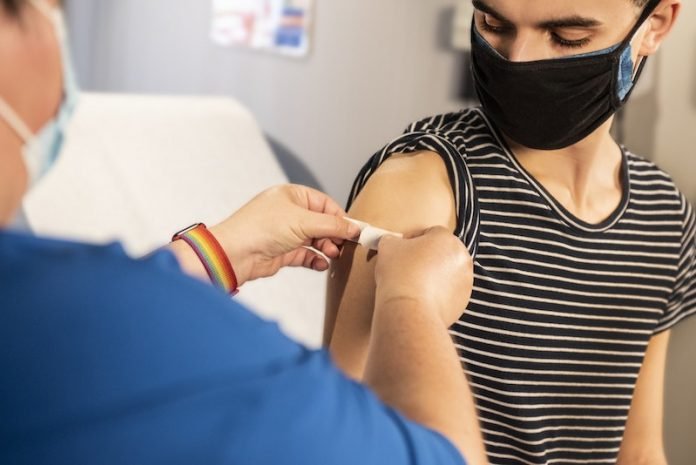
In a new study from Johns Hopkins Medicine, researchers found that antibody levels against SARS-CoV-2 (the COVID-19 virus) stay more durable in people who were infected by the virus and then received protection from two doses of messenger RNA (mRNA) vaccine.
In the study, the researchers followed 1,960 Johns Hopkins Medicine health care workers who had received both doses of either the Pfizer/BioNTech or Moderna vaccines, including 73 people who had a positive SARS-CoV-2 polymerase chain reaction (PCR) test result before the first vaccine dose.
The 73 were divided into two groups—those who were infected at 90 days or closer to the first vaccine dose, and those whose exposure to the virus was more than 90 days before the initial shot.
Antibody levels were compared for those with and without prior SARS-CoV-2 infection at one, three and six months following the second vaccine dose.
In addition, antibody levels were compared at one and three months following the second dose between the two groups with prior SARS-CoV-2 infection.
They found that health care workers with prior SARS-CoV-2 infection followed by two doses of mRNA vaccine—therefore, three independent exposures to the S1 spike protein—developed higher antibody levels than those with vaccination alone.
The relative differences were 14% higher at 1 month following the second vaccine dose, 19% at three months and 56% at six months.
The team also found the study participants with a PCR-confirmed SARS-CoV-2 infection more than 90 days before their initial vaccination had adjusted antibody levels 9% (one month following the second vaccine dose) and 13% (three months following the second vaccine dose) higher than those who were exposed to the virus less than or equal to the 90-day mark.
This suggests that a longer interval between infection and first vaccine dose may enhance the antibody response.
Further work is needed to determine whether increased post-vaccination durability in previously infected people is attributable to the number of exposures to the virus, the interval between exposures, or the interplay between natural or vaccine-derived immunity.
If you care about vaccines, please read studies about if you have a weakened immune system, consider 3rd COVID-19 vaccine dose and findings of what the Delta variant means for COVID-19 spread and vaccines.
For more information about vaccines and your health, please see recent studies about COVID-19 vaccines are 66% effective fighting against Delta variant and results showing what you should know about COVID-19 booster shots and third vaccine doses.
The study is published in the Journal of the American Medical Association. One author of the study is Aaron Milstone, M.D., M.H.S.
Copyright © 2021 Knowridge Science Report. All rights reserved.



